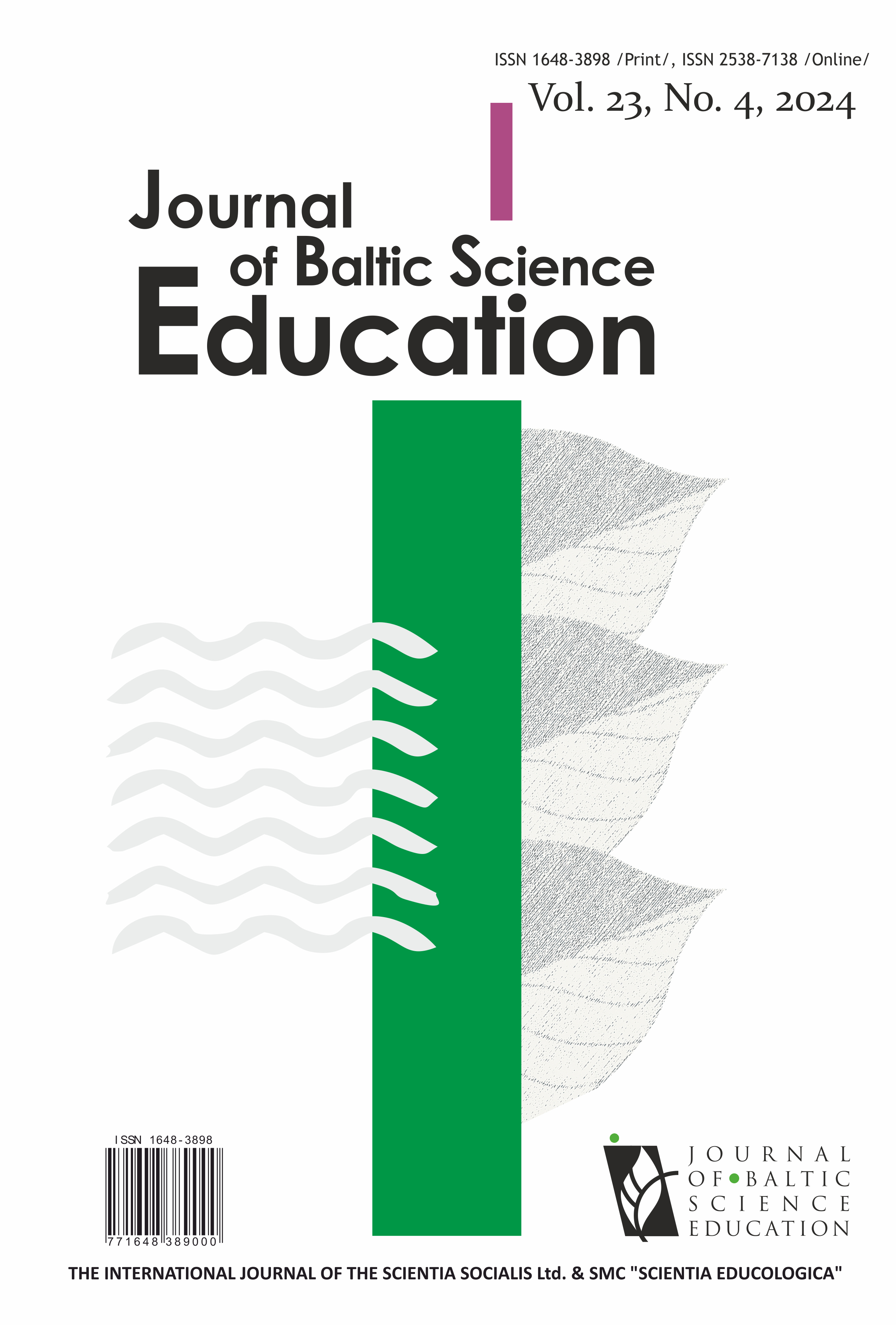CORRELATION BETWEEN TEACHERS’ DISCOURSE STRATEGIES AND THE QUALITY OF STUDENTS’ SCIENTIFIC DISCOURSE IN WHOLE-CLASS TEACHING
CORRELATION BETWEEN TEACHERS’ DISCOURSE STRATEGIES AND THE QUALITY OF STUDENTS’ SCIENTIFIC DISCOURSE IN WHOLE-CLASS TEACHING
Author(s): Shuang Xu, Yanbing Li, Yi Zou, Xiao Huang, Tao HuSubject(s): Social Sciences, Education
Published by: Scientia Socialis, UAB
Keywords: scientific discourse; whole-class teaching; teacher’s question; cognitive demand; discursive move;
Summary/Abstract: Teachers’ discourse is instrumental in facilitating the emergence of students’ scientific discourse. Many studies have shown that teachers’ cognitive demand levels and discursive moves are the main factors in eliciting students’ scientific discourse, but few focus on whole-class (non-grouped) teaching settings. This research explored the correlation between teachers’ discourse strategies (the cognitive demand of questions and discursive moves) and students’ scientific discourse quality in whole-class teaching without intervention. Applying the chi-square test, correspondence analysis, and content analysis, the study revealed the correlation structure between teachers’ discourse strategies and students’ scientific discourse quality. The teachers’ lower (remembering and understanding) cognitive demand questions, primarily elicited students’ low-quality (everyday discourse and elementary) scientific discourse responses. High (analyzing and creating) cognitive demand questions, primarily elicited students’ high-quality (moderate and advanced) scientific discourse responses. The teachers’ discursive moves also elicited students’ high-quality scientific discourse, particularly following the teacher’s high cognitive demand questions. High-control discursive moves (e.g., “providing opinion”) elicited students’ moderate scientific discourse responses, and low-control discursive moves (“allocation and organization”) elicited students’ moderate and advanced scientific discourse responses. Based on these findings, suggestions were made for science teachers.
Journal: Journal of Baltic Science Education
- Issue Year: 23/2024
- Issue No: 4
- Page Range: 786-800
- Page Count: 15
- Language: English

